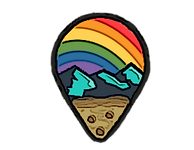
Your donation to the Montana Family Center is Tax Deductible. We are a 501-c-3 tax exempt charity
On Being an Ally
Ally Training for Families
The Montana Family Center presented the LGBTQAI+ Allyship Training developed by the Safe Zone Project workshop model as a full 3 hour program in Billings, Helena, and Missoula. We will be continuing to make this workshop available to any community organization, church, school, healthcare provider, or business that desires to improve understanding of how to be more inclusive of their LGBTIQA+ clients, members, and community.

Here are some helpful tips on becoming an ally and learning to comfort a person who identifies as queer and is asking for help.
“L” is for Love
-
Remember that love, although it may seem required, is not always given. Youth who identify as queer have a higher rate of not being accepted by their families. Sometimes what they need most is to know that someone is there who loves them and will support them through their struggle.
“G” is for Grateful
-
Try and remind the individual who identifies as queer you are talking to that you are grateful for them. Remind them that being queer doesn’t define their whole life. For example, if they are really good at DIY (Do It Yourself) projects, remind them how grateful you are for the awesome candles they made you. Their queer identity does not affect their DIY skills at all. We all have multiple identities, multiple aspects of who we are, remind them they are more than “just queer.”
“B” is for Bridging
-
This is a tricky one. Sometimes when an ally is trying to build a bridge of common ground between themselves and a person who is queer, the queer person find it hard to take their words to heart. Sometimes it’s hard because the queer person might feel like the ally has no idea what they are going through. In cases like these, the best thing an ally can do is listen, and remind them that they are there to do whatever it takes to make them feel better.
“T” is for Time
-
During the life of a person who is queer time plays an important role. It can vary from a single moment in time (someone getting kicked out of their house because their parents found out they were queer) or a longer period of time (coming out slowly to a few people at a time). In cases like this, I strongly recommend patience, love, and communication. As an ally tell them that you will be there for them. When they need it, hold their hand, listen and provide feedback/advice.
-
Even if you do not identify as part of the LGBT community, you still have an important role to play. You can learn to be an ally. As I type this blog, I am tearing up. The more I work with queer youth, the more I hear “If I had had just one person to talk to, maybe it wouldn’t have been so hard.” You and I can be that person. Together we can change the world and make those earlier statistics a truth of the past. Let’s remind people that they matter.
.png)